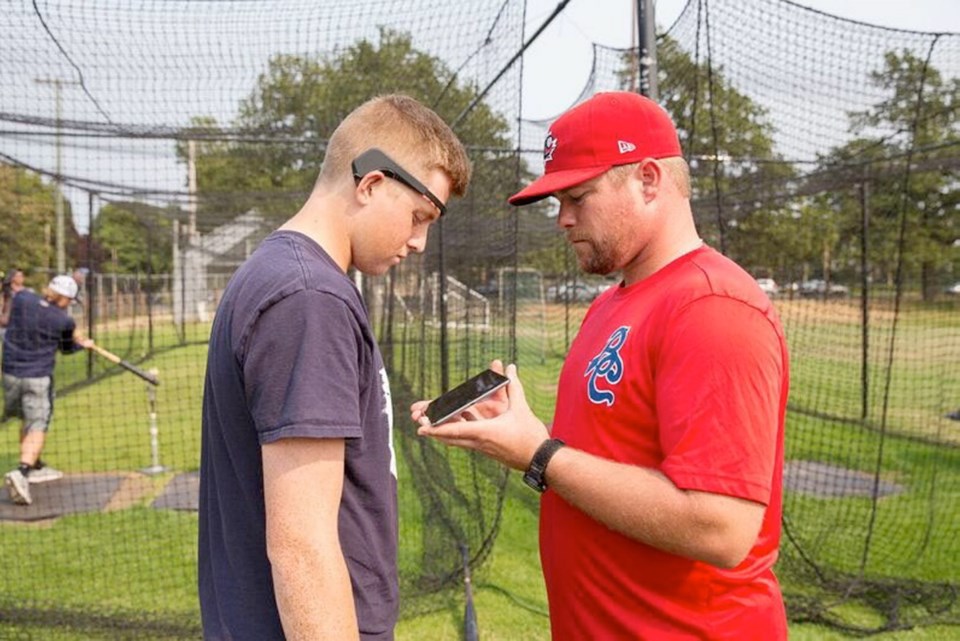As a former Houston Astros pitching prospect, Anthony Pluta tried to get into the heads of hitters. That was metaphorically, of course. Now he does it literally.
Pluta’s master's thesis at the University of Victoria, which he will defend this week, asks whether brainwaves can predict batting performance. And not over the long term. This is an immediate application for the next at-bat.
“We tested it for 2 1/2 years, using 67 players from the Island and UBC, Douglas College and North Shore Twins [junior team] on the Lower Mainland,” Pluta said.
“[By using electroencephalogram technology], we can predict performance at any given time right prior to a player’s at-bat.”
Pluta said that measuring brain activity is a more reliable indicator of performance than a coach’s gut instinct.
His sponsor for his master's thesis is neuroscientist Olav Krigolson, from the Centre for Biomedical Research at UVic. The thesis research was supported by grants to Krigolson’s lab through the Natural Sciences and Engineering Research Council of Canada.
What Pluta and Krigolson found was that the higher a batter’s brain activity in the beta range, the worse he did at the plate. The lower the brain activity in the beta range, the better the batter did because he was in a more relaxed state.
Such a finding could revolutionize baseball coaching, especially in deciding on a designated hitter for a game or in a pinch-hit situation.
But in such a tradition-bound sport, will coaches want to buy into attaching portable EEG head units to players’ heads in the dugouts during games?
“Baseball is moving in a neuroscience direction,” Pluta said.
Krigolson added: “This will not change the role of coaches. It will give them more information to use.”
Imagine, said Pluta, being able to quantify which players are “in the zone” at any point of the game.
“It’s not about guaranteeing a hit,” he said.
It’s about giving coaches a tool to quantify who among his players has the best chance of getting a hit at that particular moment.
The portable technology for this is available, but any practical or business applications on a mass scale will have to be worked out.
“We are breaking down brainwaves and taking snapshots of brain activities,” Krigolson said.
“There are lots of potential applications.” Pluta was selected 97th overall by the Houston Astros in the third round of the 2000 MLB draft out of Las Vegas High, and inked a $450,000 US signing bonus.
A sheer talent, he was rising quickly in minor pro when his arm blew on a 0-2 pitch with the High-A Salem Avalanche in Virginia on the day he was informed he would be moving up to Double-A in the Astros system.
Pluta obtained a psychology degree long-distance from the University of Phoenix. He came to the Island in 2009 hoping to resuscitate his career with the independent-league pro Victoria Seals and decided to stay.
Pluta enrolled at UVic in 2012 and now is on the verge of his master of science (kinesiology) degree.
He has coached the Victoria Eagles junior team and is also a certified competition development coach in the National Coaches Certification Program, the highest level of baseball certification in Canada.
With Pluta’s mound background, the obvious question is asked.
“It is possible to predict batting performance [using this technology], but there are just too many variables in pitching,” he said.



